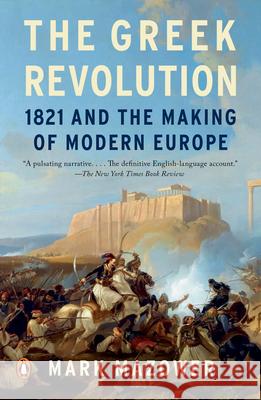The Greek Revolution: 1821 and the Making of Modern Europe » książka
topmenu
The Greek Revolution: 1821 and the Making of Modern Europe
ISBN-13: 9780143110934 / Angielski / Miękka / 2022 / 608 str.
The Greek Revolution: 1821 and the Making of Modern Europe
ISBN-13: 9780143110934 / Angielski / Miękka / 2022 / 608 str.
cena 80,92
(netto: 77,07 VAT: 5%)
Najniższa cena z 30 dni: 79,82
(netto: 77,07 VAT: 5%)
Najniższa cena z 30 dni: 79,82
Termin realizacji zamówienia:
ok. 16-18 dni roboczych.
ok. 16-18 dni roboczych.
Darmowa dostawa!
Kategorie:
Kategorie BISAC:
Wydawca:
Penguin Books
Język:
Angielski
ISBN-13:
9780143110934
Rok wydania:
2022
Ilość stron:
608
Waga:
0.56 kg
Oprawa:
Miękka
Wolumenów:
01
Dodatkowe informacje:
Bibliografia
Wydanie ilustrowane
Wydanie ilustrowane











